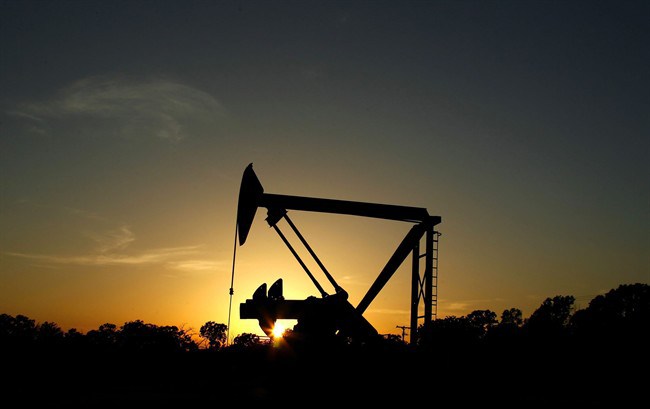The price of a barrel of oil has hit its highest level in nearly seven months — nearly US$50 a barrel — thanks mainly to supply reductions caused by unrest in Nigeria and the Fort McMurray wildfire.

U.S. crude prices rose by 43 cents a barrel Tuesday morning to US$48.15 on the New York Mercantile Exchange. Brent Crude, used to price international oils rose to US$49 a barrel in London on Tuesday morning.
That’s the highest level since Nov. 3, 2015.
READ MORE: Fort McMurray wildfire: Mandatory evacuation issued for camps north of city
On Monday, prices were up $1.51, propelling New York and Toronto stock markets to big gains.
The recovery in the price of oil towards $50 a barrel is being viewed by stock investors as a sign of an improving global economy. Jitters over the outlook had been one of the reasons why oil fell to 14-year lows of about $26 a barrel in February.
The price of oil has jumped by 85 per cent since hitting those multi-year lows.
READ MORE: Should Canadians be cheering for lower or higher oil prices?
The current surge in prices comes amid a big drop in Nigerian oil production. Attacks by militants on oil installations in the Niger Delta region have cut output to 1.4 million barrels a day. The Nigerian government’s budget is based on production of 2.2 million barrels a day.
READ MORE: Canada’s economy to take a hit from Fort McMurray wildfires: economists
Here in Canada, the shutdown of oilsands operations because of the Fort McMurray wildfire has also led to a big drop in oil production. The Conference Board of Canada estimates that the fire has led to a loss in production of 1.2 million barrels of oil a day for two weeks.
That works out to a loss of almost $1 billion in production – or a cut of about 0.33 per cent in Alberta’s gross domestic product for this year.
— With files from the Canadian Press, Associated Press


Comments